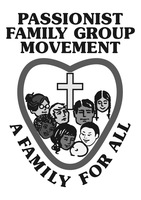Dear Passionist Family Group members and friends ,
Another week passes and the war in Ukraine wages on as does the impact of Covid across the planet and then there are the efeects of price hikes and the trying to makes ends meet. All this asks for sober reading and reflection. We here in NZ are strugglng but in relation to those at the end of war and terror, those displaced, and those suffering from poverty and malnutrition, we have much to be thankful for.
We continue to see people isolated and diconnected from their familes, friends and communities and this brings a real lonliness and pain, resulting, in mental anguish. Across the globe, we see a rise in mental health issues and concerns and it is little wonder with the ongoing effects of Covid along with all the violence and war raging in different lands. It is hard to reconcile this scene when you read in Acts of the Apostles Ch 4 – “the community was one in mind and one in heart, no one was in need, people shared what they had and the extra was distributed to those in need.” What would we need to recover some similarity in our current communities? What would each of us be required to do? Jesus encouraged us to use our gifts and talents and to not ignore one another. He promised to be there.
So, this Sunday’s gospel gives us an initial clue through the powerful story of the forgiving father or prodigal son. The act of forgiving ourselves and others is life giving to say the least and it provides a pathway forward to new realtionships and the repairing of old ones. Its about the acceptance of our own limitations along with the limitations of others. The story is poignant, in that it says the father sees his son from a long way off. What does this mean? The father, is aware that returning to the community or home is filled with trouble and as a father he goes out in an act of protection. This story shows the no limits of loving unconditionally and facing the wrath of others is just par for the course. It is this absorbing hostility so as to free people from all that binds them.
Lent, a time of renewal, of coming home and this story shows us how to get the and the attitudes that are required to do so. It is not easy but, it is a laying down ones anger, hurts, mistakes and losses and handing these over with a love that wants to serve, honour, admit to failure and wanting to be held and forgiven. This absorption is the anthesis to anger and hatred. It is the admission that I as well as others get things wrong. Therefore, rather than explode it is advised that we stop, take stock and admit where we are hurting, why we are angry, feeling lost, lonely or feeling empty. It is our recognising the power of vulnerability and its ability to heal.
So, the cross of Jesus has much to teach us and the lengths that God goes to to show he loves us. We too, are called to follow in his footsteps and live the actions of the forgiving father. That is, always looking out, seeing the need and also seeing our own limitations. All the while knowling that our call to love will demand much of us and requires us to let go of hurt and angry feelings and trust in a love that will bring feedom to others and to ourselves.
As St Paul of the Cross – founder of the Passionists said,
“When you go int the garden of prayer do nt collect leaves of good feelings,
rather gather the fruits of imitating Jesus.”
Have a good week – keep each other in prayer along with our brothers and sisrters in Ukraine, Russia, Poland and surounding countries.
Fourth Sunday in Lent Year C, 27 March 2022.
Scripture reflection:
Rejoice! This child of mine was lost, and is found!
In these final weeks of Lent we ask for the grace to see ourselves as God sees us.
Lectionary readings
First reading: Joshua 5:9-12
Responsorial Psalm: Ps 33(34):2-7
Second reading: 2 Corinthians 5:17-21
Gospel: Luke 15:1-3, 11-32
Link to readings – click here
On this Laetare (‘Rejoice!’) Sunday midway through Lent, we are encouraged to celebrate with hope and joy before we enter the darker times of Holy Week. Today we particularly rejoice in the reconciliation and forgiveness of sins bought for us by Jesus’s suffering and death.
In the First Reading, the Israelites celebrate their first Passover in the Promised Land. No longer reliant on the manna with which God had sustained them during their years in the desert, they rejoice that God has brought them to a place where the bounty of the earth feeds them.
The Psalm is one of praise, rejoicing in God’s goodness. It glorifies the Lord, who hears and answers our prayers when we are afraid or in distress.
St Paul speaks of the ‘new creation’ made possible by Christ’s suffering and death. Through this sacrifice, God has reconciled humanity to God’s self, and our faults are forgiven. Because of this, we ourselves are then called to share the good news of forgiveness with others. (Second Reading)
The Gospel relates the first part of the story of the return of the prodigal son. We witness the total and utter forgiveness the father bestows on his selfish and wayward son, who now regrets his foolishness. Just as the father forgives his son, so we know that we too will be forgiven, as we express our sorrow for actions and inactions that take us away from God.
Humour:
- Why can’t a leopard hide?
Because he’s always spotted. - What do you call an illegally parked frog?
- How do moths swim?
Using the butterfly stroke. - How many tickles does it take to make an octopus laugh?
10 tickles. - Do you know the story about the chicken that crossed the road?
Me neither, I couldn’t follow it. - What do you get from a pampered cow?
Spoiled milk! - Where do baby cats learn to swim?
The kitty pool. - Why are spiders so smart?
They can find everything on the web. - How can a leopard change his spots?
By moving. - What did the duck say when it bought chapstick?
“Put it on my bill!”
Have a good week – love prayer and blessings,
Paul

